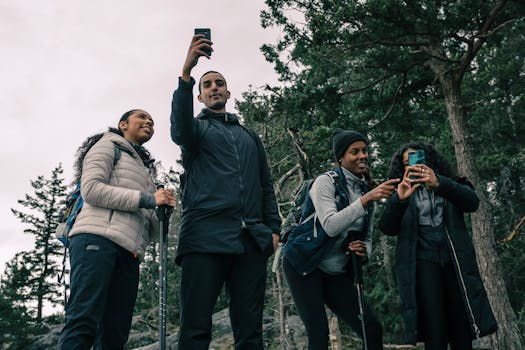Travel marketing has evolved significantly over the years, becoming an essential aspect of attracting travelers. Marketers must embrace innovative strategies to reach a diverse audience effectively.
As the travel industry continues to adapt, understanding travel marketing’s core elements helps businesses stand out. Companies need to harness new tools and approaches to effectively connect with potential customers.
This article explores travel marketing’s various aspects, offering insights into effective strategies while discussing the importance of digital presence. Enhanced understanding can lead companies to better engage with travelers.
What is Travel Marketing?
Travel marketing refers to promoting travel services to consumers, including airlines, hotels, and tourist attractions. This field ensures that businesses connect with their audience effectively.
Essentially, travel marketing encompasses various methods and channels aimed at driving interest and bookings. Companies utilize different strategies to position themselves within this competitive landscape.
Moreover, understanding consumer behavior helps tailor marketing campaigns. Knowing what drives travelers creates opportunities for businesses to meet their needs and enhance customer satisfaction.
Effective travel marketing often blends traditional methods with digital tactics. Utilizing social media, email, and content marketing can significantly enhance a company’s overall strategy.
Ultimately, travel marketing is about creating compelling narratives that resonate with travelers. By building an emotional connection, businesses can foster loyalty and encourage repeat visits.
The Importance of Digital Marketing in Travel
Digital marketing has transformed the travel industry by providing new pathways to reach potential customers. Online platforms offer an opportunity to engage audiences effectively.
Through search engines, social media, and email, travel companies can reach a vast array of customers. These digital channels can provide targeted promotions tailored to specific interests.
Moreover, potential travelers often turn to online reviews and social media when choosing destinations. Understanding this shift is essential for businesses to leverage their digital presence effectively.
Search engine optimization (SEO) plays a crucial role in ensuring visibility. Companies must optimize content to rank higher on search engine results, ultimately driving more traffic to their sites.
Additionally, digital marketing allows businesses to gather valuable insights into consumer behavior. This data enables companies to refine their strategies and create tailored experiences for travelers.
Content Marketing Strategies for Travel
Content marketing is a powerful tool for travel marketers. By creating engaging and informative content, businesses can attract and retain customers more effectively.
Blog posts, videos, and social media updates can showcase destinations, hotels, and experiences in compelling ways. This approach helps build brand awareness and establishes credibility within the industry.
Moreover, storytelling is a vital aspect of content marketing. Sharing personal travel experiences evokes emotions and encourages readers to envision themselves visiting different locations.
Additionally, businesses should consider involving user-generated content. Encouraging customers to share their experiences creates authentic content to promote the brand while engaging previous visitors.
Overall, a well-rounded content marketing strategy improves engagement and fosters relationships with travelers. When executed effectively, it can significantly enhance a brand’s value in the market.
Utilizing Social Media for Travel Marketing
Social media platforms play a crucial role in travel marketing strategies. They provide companies with a means to showcase destinations and experiences in visually appealing ways.
With millions of users sharing their journeys, social media acts as a powerful referral tool. Brands can leverage this by actively engaging with users and sharing their content.
Moreover, targeting specific demographics is simpler on social media. Businesses can create tailored advertisements that speak directly to their target audience.
Additionally, the use of hashtags can improve the visibility of travel posts. Strategic hashtag use helps reach broader audiences, increasing engagement and interest in destinations.
Ultimately, social media allows travel companies to foster a sense of community. By connecting with travelers, brands can cultivate loyalty and encourage word-of-mouth referrals.
Email Marketing Best Practices
Email marketing remains a staple for effective travel marketing strategies. Personalized emails nurture relationships and keep potential customers engaged over time.
Segmenting email lists based on traveler preferences can significantly enhance engagement rates. Tailoring content to specific segments fosters a more personalized experience for recipients.
Moreover, including visually striking images can capture attention and inspire travel. Quality imagery is crucial for conveying experiences and destinations effectively.
Additionally, offering incentives like exclusive deals or promotions can encourage bookings through email campaigns. This can entice subscribers to take action and secure their travel plans.
Lastly, measuring email campaign performance helps companies refine their strategies. Analyzing open rates, click-through rates, and conversions are essential for understanding what resonates with travelers.
Search Engine Optimization (SEO) for Travel Websites
SEO is vital for travel websites looking to attract organic traffic. By optimizing website content, businesses can enhance visibility and drive potential customers to their offerings.
Using relevant keywords throughout the website is crucial for improving search engine rankings. This optimization helps ensure that travelers find the information they seek conveniently.
Moreover, quality content is paramount in establishing authority within the travel market. Helpful guides, travel tips, and destination information can encourage visitors to stay longer on the site.
Additionally, website performance and mobile optimization play a significant role in SEO. A fast, user-friendly site enhances the overall experience, prompting visitors to book directly.
Ultimately, ongoing SEO efforts help sustain a travel website’s visibility over time. Continuous analysis and adjustments ensure businesses remain competitive within the ever-changing digital landscape.
Evaluating Marketing Success and ROI
Evaluating marketing success is crucial for refining travel marketing strategies. Businesses must measure performance to determine which tactics yield the best results.
Key performance indicators (KPIs) such as engagement rates, website traffic, and conversion rates provide valuable insights. Monitoring these metrics guides decision-making for future campaigns.
Additionally, utilizing tools like Google Analytics can offer further understanding of consumer behaviors and preferences. Analyzing this data helps marketers identify trends and areas for improvement.
Moreover, assessing the return on investment (ROI) helps allocate resources effectively. Knowing which strategies provide the best returns allows companies to focus on successful tactics.
Ultimately, evaluating marketing efforts is essential for long-term success. Continuous assessment leads to more effective campaigns, fostering sustainable growth within the travel industry.
Conclusion
In conclusion, understanding travel marketing is essential for businesses operating within the industry. By combining digital strategies, engaging content, and customer insights, companies can thrive amid competition.
As the travel landscape continues to evolve, staying current with trends will ensure success. Embracing effective marketing practices positions businesses to engage travelers and drive bookings.
Ultimately, fostering genuine connections with customers and maintaining a strong digital presence are key to thriving in the travel market. A commitment to understanding and adapting will yield positive results.


